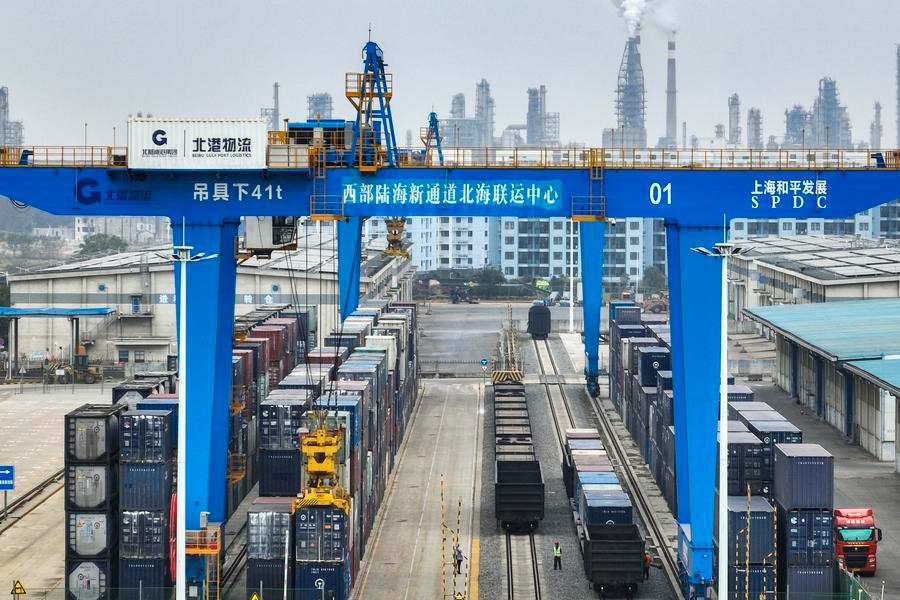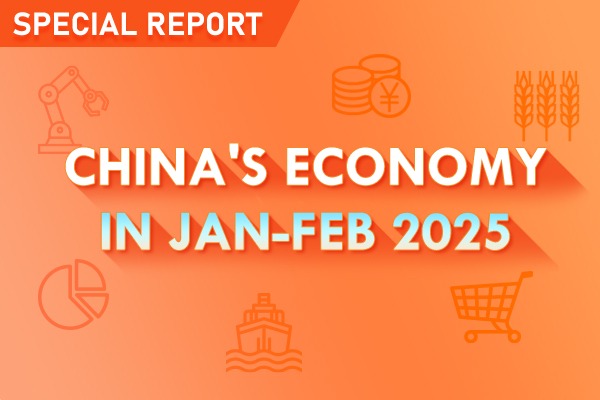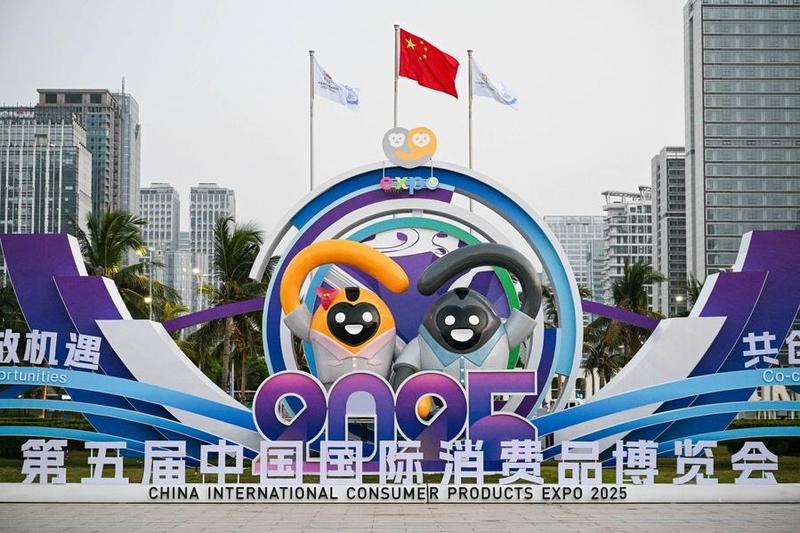Cainiao launches 'green channel' for exporters
Logistics arm of Alibaba optimizes warehousing services to ease trade pain


Cainiao Group, the logistics arm of Chinese tech heavyweight Alibaba Group, on Tuesday announced the launch of a cross-border "green channel" designed to help the country's exporters expand their footprint in overseas markets.
Experts said this will improve the capacity of Chinese merchants to mitigate the impact of the latest tariff hikes by the United States.
Leveraging its network of over 40 overseas warehouses in Europe, the US, Southeast Asia and Australia, Cainiao said it aims to not only assist traders in diversifying their business operations globally, but also in building flexible and agile supply chain models by utilizing its warehouses in Vietnam and Mexico.
The company said exporters selling large furniture, 3D printers and auto parts will enjoy preferential prices, and can store their goods in overseas warehouses free of charge for a maximum of 60 days.
Additionally, it will also provide cross-border merchants with a range of AI-powered intelligent tools, including inventory monitoring and analysis, intelligent warehouse allocation and sales forecasting, to help them achieve intelligent inventory management.
In terms of transportation capacity and logistics resources, Cainiao will offer merchants a string of supportive measures, such as freight subsidies, prioritized warehousing guarantees and last-mile deliveries.
As an important system supporting the development of cross-border e-commerce, overseas warehouses allow domestic retailers to transport commodities in bulk to overseas locations in advance, which is conducive to lowering shipping costs and facilitating the efficient delivery of goods to consumers abroad, industry insiders said.
"The construction of overseas warehouses will provide a safe haven for exporters, as this method effectively avoids cost increases caused by tariff fluctuations through stockpiling in advance and localized operations," said Hong Yong, an associate research fellow at the Chinese Academy of International Trade and Economic Cooperation.
It will optimize logistics processes, shorten delivery time and improve customer experience, thus enhancing the competitiveness of Chinese merchants in the international market. Overseas warehouses will also help merchants better adapt to local markets, Hong said.
Through intelligent inventory management and data analysis, the merchants can adjust their sales strategies flexibly, respond quickly to market changes and offset the negative effects brought on by the tariff hikes, Hong added.
The development of overseas warehouses has been high on the government's agenda.
China will advance the construction of overseas warehouses and expand cross-border e-commerce exports, so as to accelerate the cultivation of new growth drivers for foreign trade, a guideline issued last year by the Ministry of Commerce and other government departments showed.
Cainiao's initiative of using its overseas warehouses will be conducive to lowering cross-border transportation costs, and helping exporters optimize inventory management and improve their response rate to orders, said Zhang Zhouping, an independent analyst who has been tracking the cross-border e-commerce sector for more than a decade.
Zhang said shipping goods in bulk to overseas warehouses in advance will cushion the impact of policy changes in a single market, thereby enhancing the resilience and anti-risk capacities of cross-border merchants, providing an important "buffer space" for exporters in the increasingly complex international trade environment.
"Overseas warehouses serve as vital infrastructure that boosts growth in the nation's cross-border e-commerce sector," Zhang said, adding such facilities enable quicker Customs clearance, faster delivery and lower costs, while safeguarding the stability and security of supply chains.
Moreover, Cainiao is stepping up efforts to boost its overseas logistics network and accelerate expansion abroad to meet the growing demand for faster and more reliable delivery services globally.
Chinese logistics companies' intensified push to invest in global delivery networks will not only help enhance the competitiveness of Chinese foreign trade enterprises and bolster their sales in overseas markets, but also introduce a large number of overseas products to Chinese consumers, said Lu Zhenwang, CEO of Wanqing Consultancy, which is based in Shanghai.




































